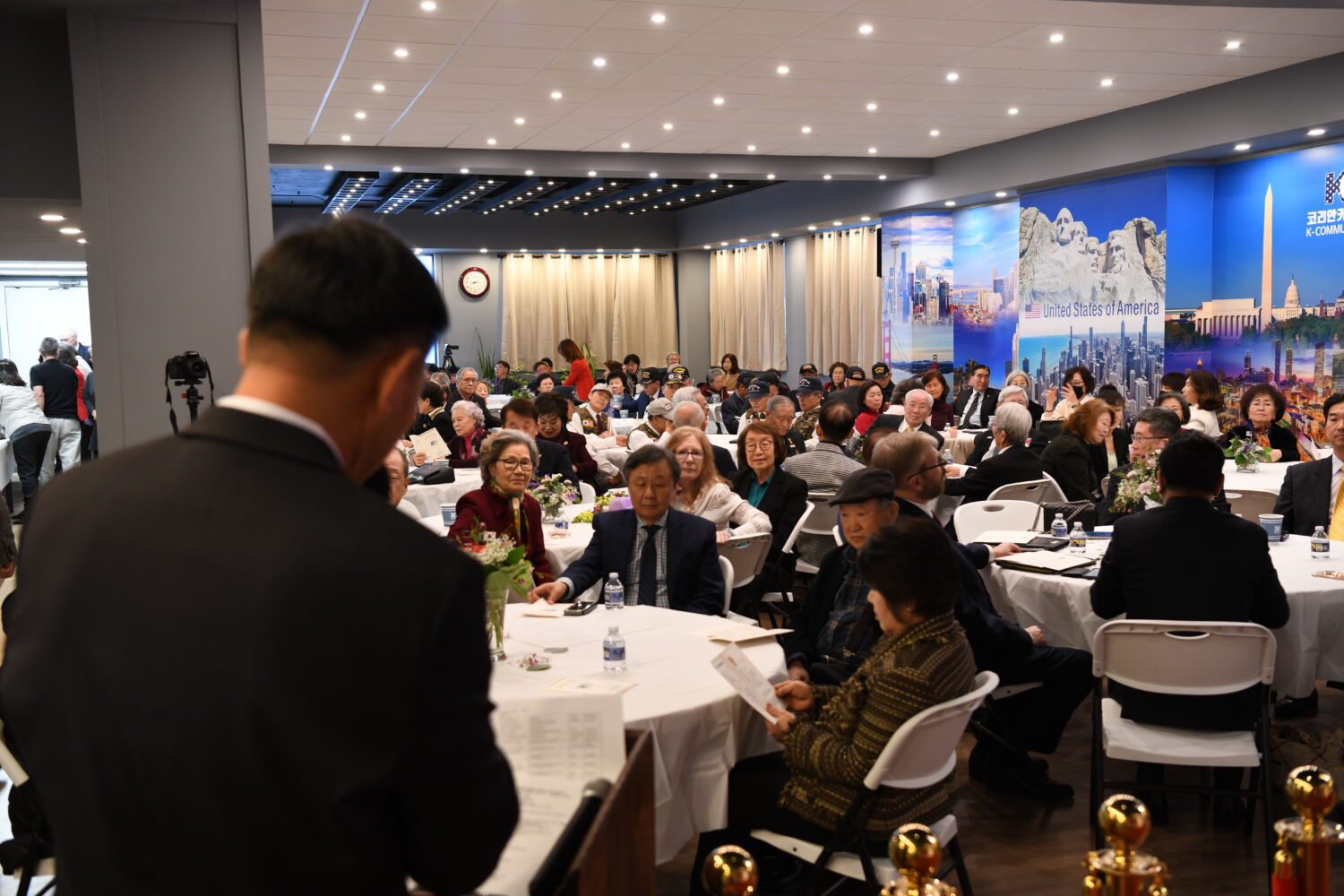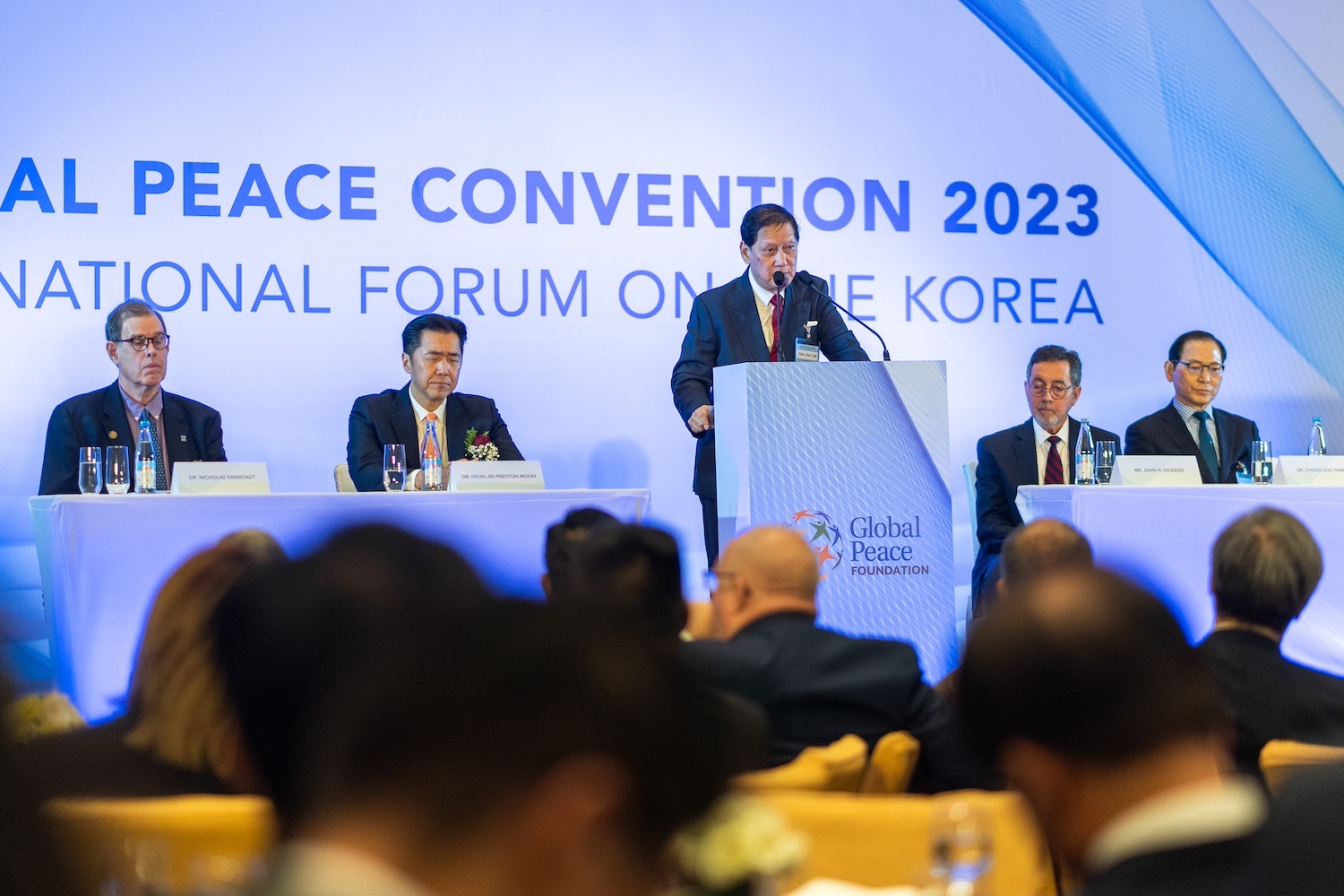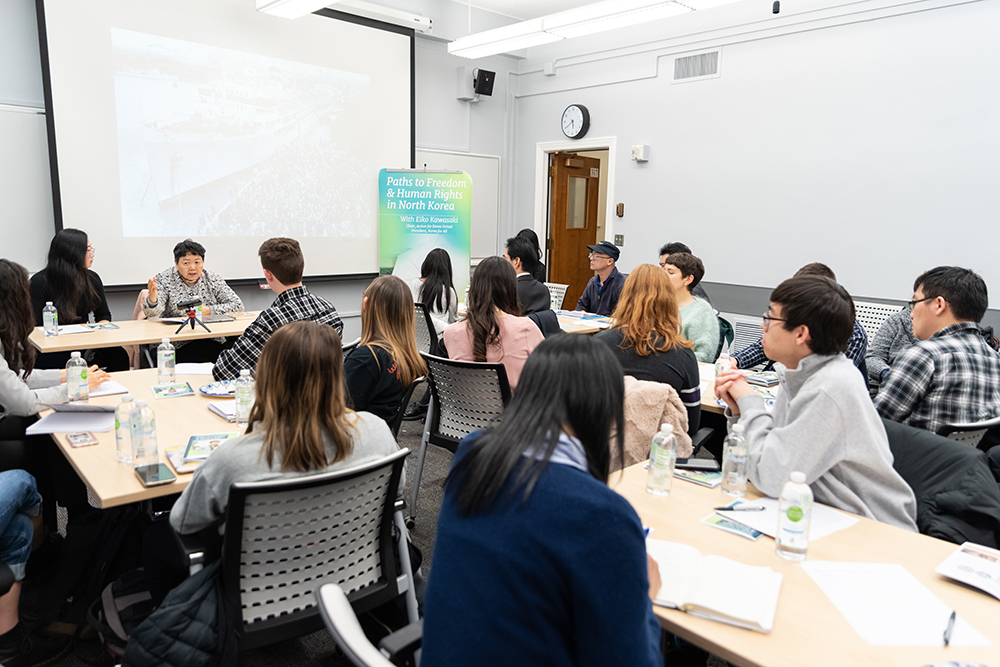
Students and Seattle community members gather at a University of Washington classroom to hear Eiko Kawasaki’s story.
March 4, SEATTLE—A diverse crowd packed a classroom at the University of Washington to listen to a powerful story by a woman who survived forty-three years in North Korea. Eiko Kawasaki is a second-generation Korean living in Japan, who was defected from the regime, but for her, it is no longer about survival; it is about bringing freedom and basic human rights to the family and people she left behind.
Sponsored by the Center for Korea Studies at the University of Washington, Nehemiah Global Initiative, and Global Peace Foundation, the session called “Paths to Freedom and Human Rights in North Korea” was a unique opportunity for a glimpse into the sobering reality facing the millions suffering in North Korea and discuss the role of diasporic Koreans and the international community in addressing the challenges confronting the peninsula.
Eiko Kawasaki was lured into North Korea at the young age of seventeen by propaganda for a better life, a “Paradise on Earth” realizing too late that she would not be able to return to her home in Japan for nearly a lifetime. Under “Korean diasporic returns to North Korea” project from 1959 until 1984, in total 93,340 Korean diaspora and their families who lived in Japan including 1,831 Japanese wives went to North Korea, and they have never been allowed to go back to Japan.
For forty-three years she witnessed horrors—starvation, torture, domestic violence, and sexual harassment—that she would never outrun in her mind, even after finally escaping in 2003. Now, seventeen years later, she has yet to see four out of the five children left behind in the nightmare the North Korean regime once advertised as a paradise. “I have serious insomnia due to the fear that my children and grandchildren might be charged with treason due to my defection,” mourned Kawasaki. “They would be guilty by association and may lose their lives for it someday.”
Kawasaki’s painted a disturbing picture of how life in North Korea only got worse after the death of Kim Il-sung. People died of starvation every day. Bodies littered the streets and inside houses as families quietly passed. “Theft, robbery, murder, and anything evil you can think of in this world happened all together and created chaos. Some people even ate human flesh.” Her harrowing tale illustrated a tragic violation of human rights in a country where millions are in need of rescuing even as their bordering neighbors live in an interconnected world, free to travel across streets or oceans at their leisure, shop and fill their bellies at will at abundant restaurants and supermarkets.
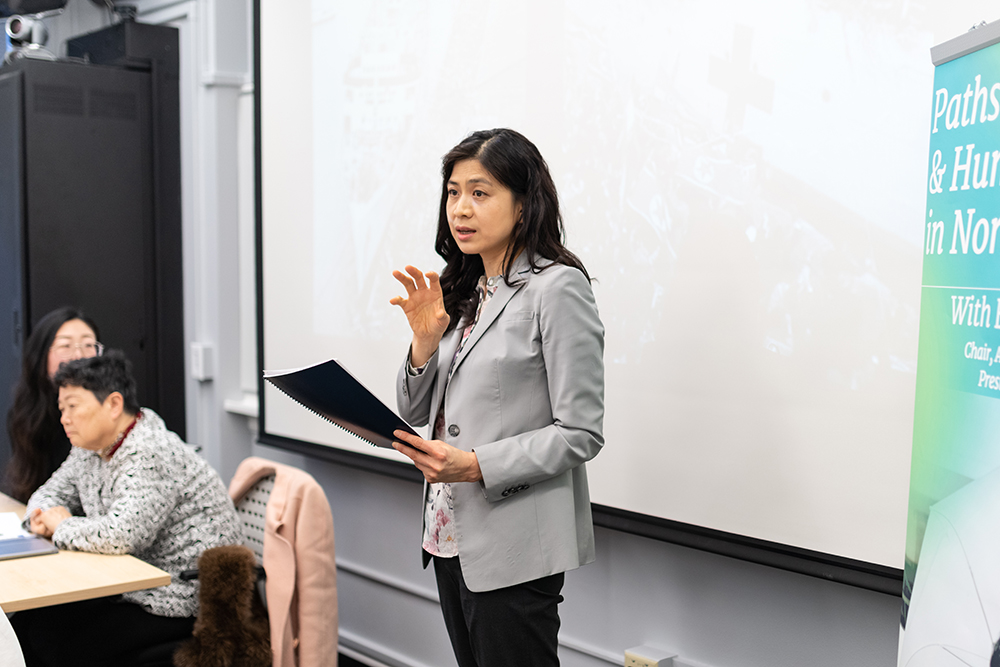
Dr. Soonok Kang welcomes Eiko Kawasaki to Washington
Dr. Soonok Kang, Vice President of Global Peace Foundation, attended the event and commended Ms. Kawasaki’s efforts to bring awareness and change to the human rights issue in North Korea. The starting point of establishing human rights lies in our common humanity, said Dr. Kang. When we can recognize the values we share across all borders, whether they be geographic or our ethnicity, language, or culture, we begin to see each other as members of the same human family and long for each other’s freedom. Ms. Kawasaki’s work includes Korea of All, an NGO dedicated to helping North Korean defectors adjust to life in Japan, and Action for Korea United, a coalition that is driving efforts to build global support for peaceful reunification on the Korean peninsula through the One Korea Global Campaign. This multi-pronged international advocacy campaign builds strategic partnerships to build a consensus for the Korean Dream: a new nation that will bring benefit to all humanity.
Although clearly distressing, Ms. Kawasaki’s story is one of overwhelming hope. She is confident the world will band together in the twenty-first century. With the support of powerful nations, peaceful reunification of the Korean peninsula will be the catalyst for peace in the region and a model to the world. “I ask every one of you to help.”
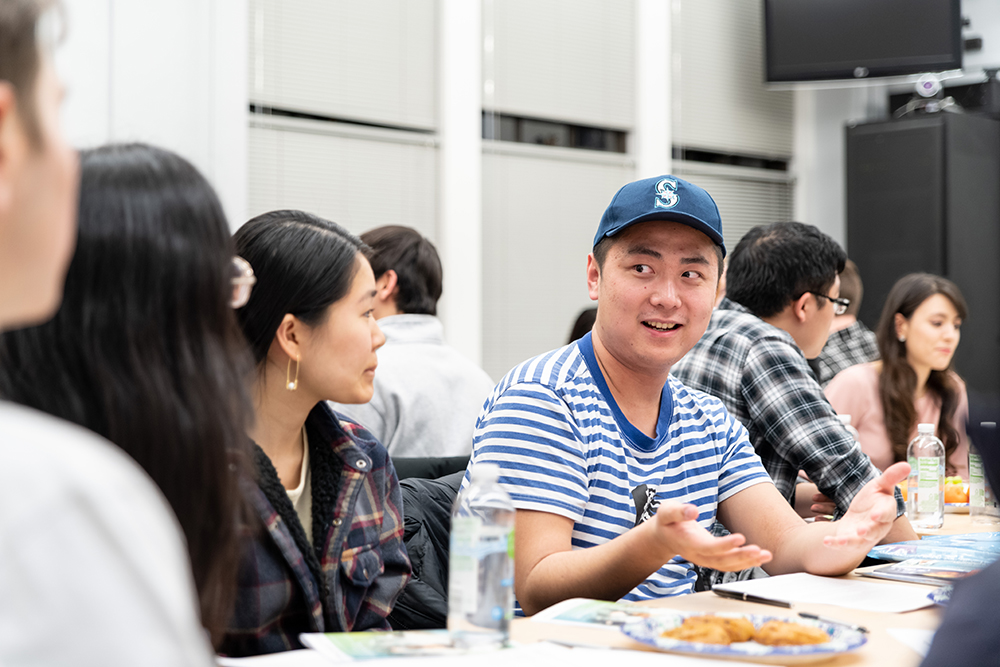
Students discuss paths to the peaceful reunification of Korea
What is the solution? How can we work on this challenging issue? Students and members of the Seattle community discussed these pressing questions as small groups following Mr. Kawasaki’s presentation. The audience shared some of their highlights, calling on the international community to spread awareness of the peninsula’s human rights issues through social media as well as stressing the need for reunification rather than division. “Student organizations can take the lead in spreading awareness,” said one UW student.
The rare opportunity to hear such a moving story from the mouth of someone who has experienced the real tragedy on the Korean peninsula caused resounding appreciation and inspiration to take action for the dream of One Korea. The dream for a united Korean peninsula will be led by the Korean people, but will require the support of the international community to bring peace to the nation, region, and world.
Learn more about the One Korea Global Campaign and get involved today.


